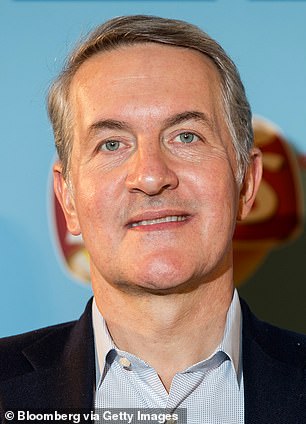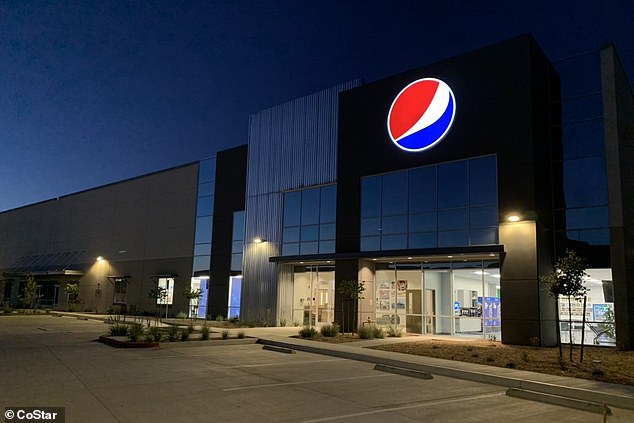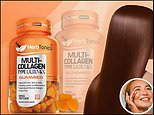It's not inflation - it's EXCUSEFLATION: Top businesses including Wingstop and Pepsi are accused of using inflation, COVID and Ukraine war as excuse to hike prices and inflate bosses' pay
- Companies like PepsiCo. and Wingstop have been cashing on narratives and headlines about global crises to inflate their prices and line their pockets
- Home Depot, Walmart, and Dollar Tree have also been accused of the practice
- The companies have been pushing prices to see how much consumers will pay
A number of companies have been accused of cashing in on headlines about global crises and inflation to boost their prices and increase profit for shareholders and executives.
Business analysts have said companies like PepsiCo., Wingstop, Home Depot, Walmart, and Dollar Tree, have latched onto narratives surrounding crises like the COVID-19 pandemic, Russian's invasion of the Ukraine, and inflation as an excuse to raise prices and see how much consumers are willing to pay.
The practice, known as 'excuseflation' has permeated even down to local businesses, with one Chicago bakery manager owning up to it, telling Bloomberg 'it's an opportunity to increase the prices without getting a whole bunch of complaining from the customers.'
While inflation has waned from its staggering peaks last year and the pandemic grows increasingly distant, some businesses have continued to intentionally raise prices on their goods, with corporate profit margins reaching a record breaking 13.5 percent in 2021, according to Bloomberg.
And as those prices continue to rise and customers become accustomed to them, they become normal and leave customers shelling out more for products while companies line their pockets.



PepsiCo. CEO Ramon Laguarta and WIngstop CEO Michael J. Skipworth
PepsiCo. was one company recently accused of questionable practices by Rines on a recent episode of the Bloomberg podcast Odd Lots.
Rines said Pepsi's tactics follow a strategy called price over volume, or POV, which passes the cost of stunted sales volumes caused by global events onto the customer.
He told Odd Lots how Pepsi lost sales from the Russian market when the nation invaded Ukraine last year, but merely upped its prices for consumers elsewhere to make up for that loss.
Effectively, Pepsi was asking consumers to reimburse them for losing the Russian market, according to Bloomberg. And while normally a price hike might send customers to competitors like Coca Cola, the narrative around the Russian invasion has allowed Pepsi to keep its customers despite its price hikes.
'You shouldn't have Pepsi being able to push price, in theory, right? It should be Pepsi and Coca-Cola battle it out and you have very minimal price increases and they don't have the ability to really play catch up with inflation,' Rines said. 'And that's simply not the case right now.'
Pepsi CEO Ramon Laguarta recently dodged a question from analysts about whether the company would cool prices by promoting the brand integrity he was trying to foster.
He said Pepsi was 'trying to create brands that can stand for higher value to consumers and consumers are willing to pay more for our brands.'

Wingstop is one brand that has been accused of 'excuseflation'

PepsiCo. increased prices to make up for lost sales volumes by the Russian invasion of Ukraine
The chicken wing restaurant chain Wingstop has also been a a culprit of using excuseflation to up their prices, Rines said, as they've been continuing to pump their prices even after effects of the 2021 avian flu on the poultry market subsided.
That year, wholesale prices for chicken wings spiked 125 percent over the course of 12 months, according to Bloomberg.
Rines said during that crisis Wingstop 'began to push price, push price, push price and they had zero pushback from the consumer.'
Despite those hikes, he said 'the consumer just continued to buy chicken wings, and it's not as though there are a limited number of places to go buy a spicy chicken wing.'
And though wholesale wing prices are down 50 percent, Wingstop has kept their prices as high as ever.
'Wingstop is not exactly stopping pushing their price. In fact, they're saying and guiding towards a typical 2 percent to 3 percent type price increase,' Rines said.
Profits for Wingstop in turn have soared nearly 250 percent since 2020, according to Bloomberg.
Most watched News videos
- Moment French police ram speedboat into overcrowded migrant vessel
- 'Britain's Bill Gates' feared dead as 180ft superyacht sinks
- Moment cops find LuluLemon shoplifter hiding in Tesla trunk
- Two giant waterspouts are spotted over the sea in Italy's Fregene
- Brazen car thieves steal car as owner fills up at a petrol station
- King Charles receives formal welcome as he arrives at Balmoral
- Russian troops beaten and taped to trees for being 'drunk'
- Harry and Meghan enjoy VERY steamy salsa dance before quick kiss
- King Charles arrives in Southport to meet knife attack survivors
- Thug charging at police swiftly tackled to the ground in Rotherham
- King Charles appears moved inspecting floral tributes in Southport
- Ukrainian paratroopers take out Russian defences in Kursk village






























































































































































































































































